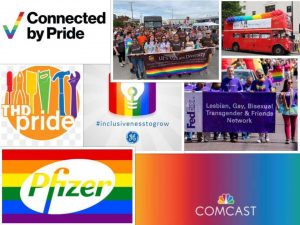
Being a kid in the 90s, I was too young to fully understand who the “Unabomber” was, what he wanted, or why he sent bombs to people in the mail. I asked my NPC family members but never really got an introduction.
I never got a satisfactory answer because society never looked itself in the mirror to figure out how it could have produced such a figure – which would have required asking hard questions.
In upcoming articles, we’ll dive into exactly what the Unabomber got right — given his literal genius (an IQ in the 160s according to most estimates), experiences in the elite strata of academia, and prescient foresight — in his diagnosis of a sick techno-society via his manifesto.
To kick the series off, though, we’re going to dive into the why – to uncover the motivations that would drive an otherwise promising candidate for an American “success” story (in the conventional sense of the word) into a life of isolation, malevolence, and violence.

——————–
“The Widow Douglas she took me for her son, and allowed she would sivilize me; but it was rough living in the house all the time, considering how dismal regular and decent the widow was in all her ways; and so when I couldn’t stand it no longer I lit out.”
-The Adventures of Huckleberry Finn
Kaczynski devoted a substantial portion of his manifesto, penned alone in a remote Montana cabin, to the concepts of “oversocialization” and “feelings of inferiority” – ones which he overtly rejected and identified as a major ill of society.
It’s important to note that Kaczynski ascribes these characteristics to “modern leftism.” He provides significant and convincing justification for doing so (as these are, in fact, truly the dominant psychological traits of what might be called “neoliberals”). But, as Kaczynski ran in these circles before going underground (including a stint at Harvard University), we can infer that he saw these traits of the impersonal, abstract “left” in himself – at least to some extent.
Being social creatures, after all, each of us is to one degree or another, the byproducts of the cultural stew we come from.
Psychological projection: “the process of displacing one’s feelings onto a different person, animal, or object.”

Kaczynski explicitly notes that his diagnosis of modern society is not limited to the left – just that they are strongest in those who identify with leftist ideology:
“The problems of the leftist are indicative of the problems of our society as a whole. Low self-esteem, depressive tendencies and defeatism are not restricted to the left. Though they are especially noticeable in the left, they are widespread in our society.”
The reason that the leap can be made from the confines of the left to society as a whole is that, for numerous reasons we have explored elsewhere, leftist culture is the mainstream culture of the corporate state in the modern era.




Above: The BLM and LGBTQ banners fly at the US Embassy in Seoul, South Korea in 2020
Briefly, a handful of the reasons for the establishment’s adoption of leftism (among many) are:
“Let me tell y’all what it’s like,
Being male, middle-class and white…
I got shit running thought my brain,
It’s so intense that I can’t explain…
I’m pissed off, but I’m too polite,
When people break in the McDonald’s line.
Mom and Dad you made me so uptight,
I’m gonna cuss on the mic tonight.”
-Rockin’ the Suburbs, Ben Folds Five
In the case of oversocialization, what Kaczynski meant was that the confines of acceptable moral behavior (beginning in early childhood) are squeezed tighter and tighter across time through a variety of means, but most effectively through shame:
“One of the most important means by which our society socializes children is by making them feel ashamed of behavior or speech that is contrary to society’s expectations. If this is overdone, or if a particular child is especially susceptible to such feelings, he ends by feeling ashamed of HIMSELF.”

The psychological toll that oversocialization takes on the individual is that “the moral code of our society is so demanding that no one can think, feel and act in a completely moral way”:
“Thus the oversocialized person is kept on a psychological leash and spends his life running on rails that society has laid down for him. In many oversocialized people this results in a sense of constraint and powerlessness that can be a severe hardship… among the more serious cruelties that human beings inflict on one another.”
In the face of an industrialized, automated society that Kaczynski believed (for good reason) was headed towards calamity, he himself likely deeply felt the sense of powerlessness and hopelessness that he wrote about in the third person in his manifesto.
————–
Alienation produces powerful social phenomena, and never for the better – as we have previously explored in What Nietzsche Really Meant by ‘God Is Dead’.
Who wouldn’t feel like an outsider in the context of modernity? Granted, not everyone remedies the situation with mail bombs, nor do they have the same capacity to articulate exactly what is rotten in the culture in the same way as Kaczynski did in his manifesto.
Nonetheless, the downstream pathologies manifest in myriad other ways:
Even if we lack the insight to necessarily cognitively explain Western society’s ill (all the more extreme in the post-COVID world), we can feel the same pressures that Kaczynski did – only magnified in intensity over time.
We’ll detail coming up what Kaczynski got right about the state of the world and the eternal march of technological “progress” away from the natural state of man.
Ben Bartee is a Bangkok-based American journalist with opposable thumbs. Follow his stuff via his blog, Armageddon Prose, Substack, Patreon, Gab, and Twitter.
